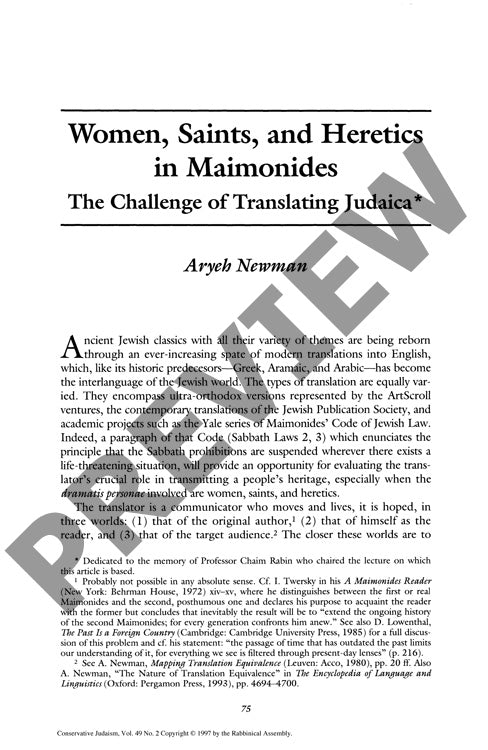Women Saints and Heretics in Maimonides
Couldn't load pickup availability
Translating classical Jewish texts requires navigating complex cultural and temporal gaps that extend far beyond mere linguistic conversion. A close analysis of Maimonides' Code of Jewish Law, specifically passages about Sabbath observance during life-threatening situations, reveals how translators serve as cultural interpreters mediating between multiple worlds: the medieval author's context, their own understanding, and modern readers' perspectives. Through a case study methodology examining three problematic phrases about women, saints, and heretics, the research demonstrates how successful translation must address diverse audience needs, from scholars requiring literal accuracy to lay readers seeking accessible meaning. Historical phrases like "slaves or women" reflect period-specific social structures rather than enduring religious principles, demanding careful contextual interpretation for contemporary audiences. Similarly, medieval concepts of religious authority and heresy carry meanings that have evolved significantly over time. Effective translation of classical Judaica ultimately requires both deep familiarity with accumulated scholarship around the original text and sensitivity to modern reader expectations, illustrating how translators must balance preservation of authentic meaning with contemporary relevance in transmitting cultural heritage.

More Information
-
Physical Description
-
Publication Information
Published
ISBN
-
Publication Credits
Aryeh Newman

